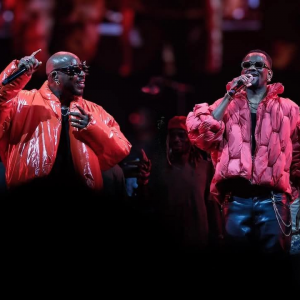In the 90s and early 2000s, musical groups dominated the industry across various genres. Whether it was Destiny’s Child in R&B, Linkin Park in rock, or Magic System in African music, groups played a huge role in shaping popular culture. However, in today’s music scene, solo artists are taking over, and groups are becoming increasingly rare.
What caused this shift? Why do record labels and artists now prefer solo careers over group collaborations? In this article, we explore four key reasons behind the decline of musical groups and what modern artists can learn from this trend.

The Digital & Streaming Revolution: A Solo Artist’s Paradise
The rise of streaming platforms like Spotify, Apple Music, and YouTube has changed how music is distributed and consumed. Today, artists no longer rely on record labels to reach audiences—streaming allows independent musicians to gain massive exposure on their own.
- In the past, groups had more opportunities because radio stations and physical album sales required strong promotional teams.
- Today, individual artists can go viral overnight without needing a group dynamic.
Example: Lil Nas X rose to fame through TikTok with Old Town Road without a band or major label backing. This wouldn’t have been possible in the 90s when group dynamics played a bigger role in industry success.
Streaming services also prioritize personalized recommendations, making it easier for solo artists to gain recognition individually rather than as part of a group.

Financial and Managerial Challenges of Groups
From revenue sharing to creative conflicts, managing a group is much harder than handling a solo artist. Record labels prefer investing in individuals because it’s simpler and more cost-effective.
- Revenue Splits: Money has always been a major issue for groups. TLC, one of the biggest girl groups of the 90s, famously went bankrupt despite selling millions of albums.
- Creative Differences: Many groups fall apart due to disagreements about artistic direction. The Fugees had internal conflicts that led to their breakup despite their huge success.
- Logistics & Touring: Organizing tours, contracts, and schedules for multiple artists is far more complicated than managing a single performer.
For these reasons, labels find it more profitable to push solo artists rather than deal with the risks that come with groups.
Social Media & Personal Branding: Fans Want Individuals, Not Groups
Modern audiences want to connect personally with artists, and social media plays a huge role in this shift.
- Platforms like TikTok, Instagram, and Twitter allow artists to share their daily lives and engage directly with fans.
- In a group, individual members often struggle to create their own identity, leading to less personal connection with the audience.
Example: Beyoncé’s solo career exploded because she built a strong individual brand, something that Destiny’s Child as a group couldn’t fully achieve. Similarly, Camila Cabello became more famous after leaving Fifth Harmony.
Today, fans follow artists for their unique personalities, which makes solo careers more attractive.

Changing Consumer Preferences: The Demand for Unique Sounds
Listeners today crave diversity and uniqueness, and solo artists can experiment more freely than groups.
- Solo artists can change their sound and image without needing to consult group members.
- Labels also push for unique styles, making solo musicians more adaptable to trends.
Example: Burna Boy, The Weeknd, and Billie Eilish have all built distinct sounds that set them apart. This level of individuality would be harder to achieve in a group setting.
With listeners focusing more on artist personalities and unique styles, the traditional group format has become less appealing.
Conclusion
The era of musical groups may be fading, but the music industry continues to evolve. Solo careers have become the norm due to streaming, financial incentives, social media, and changing audience preferences. However, collaborations and temporary groups still play an important role in music today.
Need Dovix Services?








